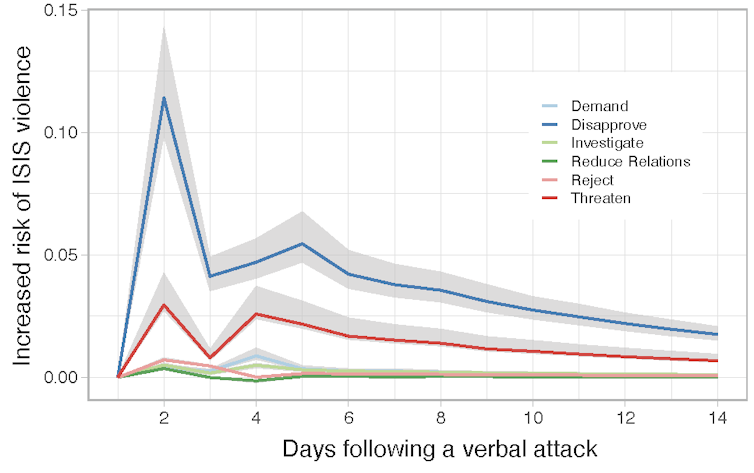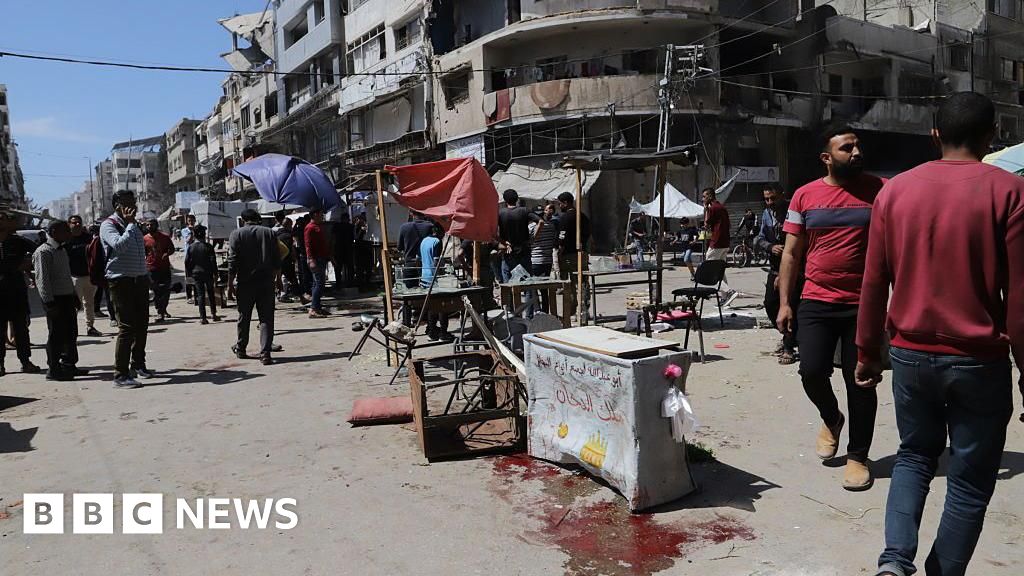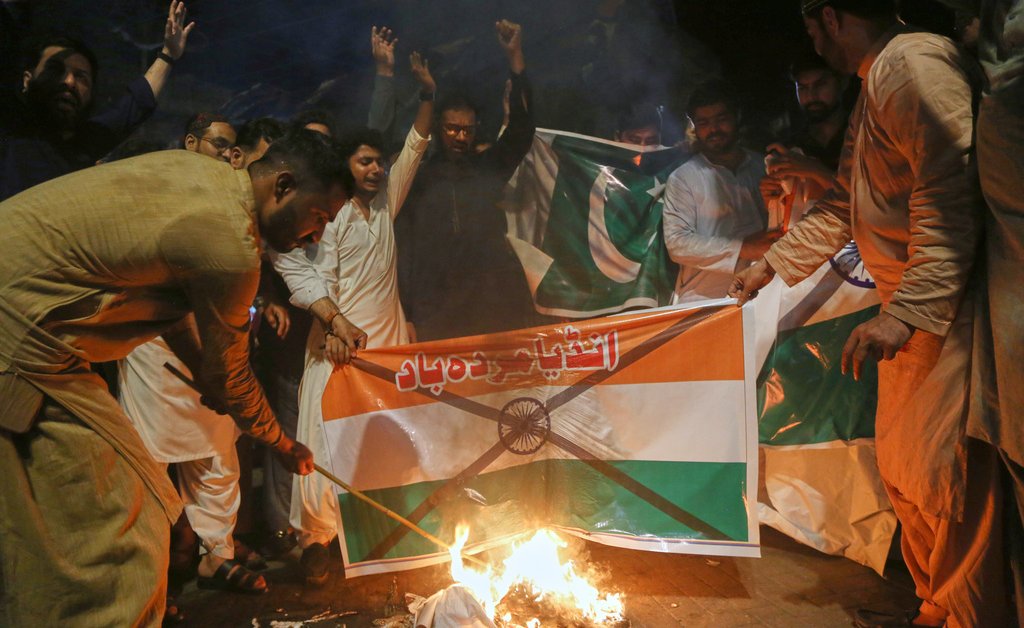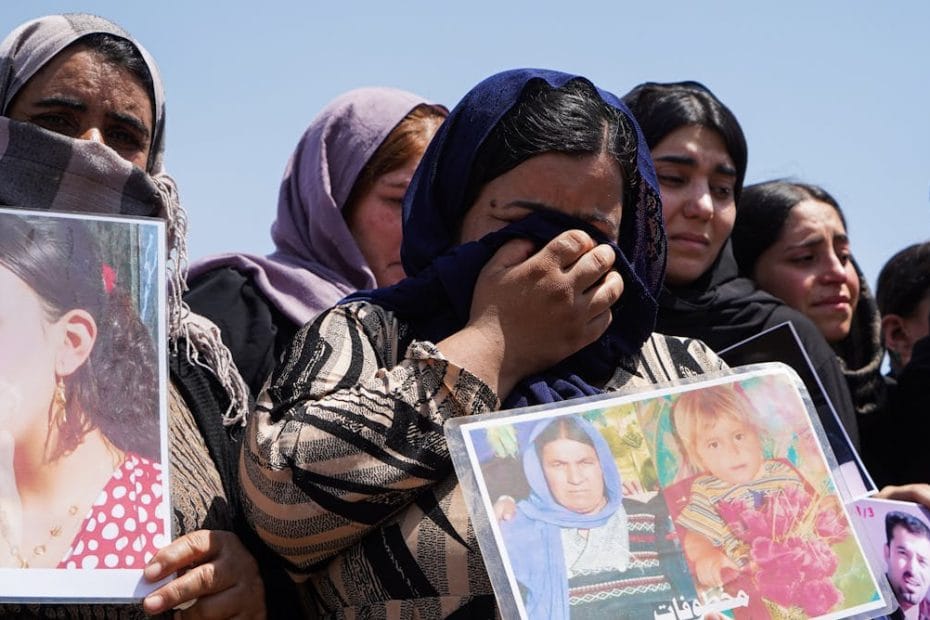Terrorist groups respond to government verbal attacks and slights with more violence against civilians
After a New Year's Day 2025 attack by the Islamic State group killed 14 people in New Orleans, President Joe Biden warned that terrorists have “no safe haven” in the United States
Governments often condemn terrorist groups in this way, issuing threats and engaging in what we call “verbal attacks.”
But this approach can backfire; extremist groups often respond to such rhetoric with increased violence against civilians. That's what we found when we analyzed six years of data on incidents of terrorist violence and their proximity to government condemnation.
Our research focuses primarily on the Islamic State group.
The extremist group came to the world's attention in early 2014 when it began seizing territory in Iraq and Syria. At the height of its power in 2015, the Islamic State group controlled more than 100,000 square kilometers (39,000 square miles) of land.
Although the group's numbers have since declined significantly, it remains the world's deadliest terrorist group – killing nearly 2,000 people in 2023.
The rapid movement of the Islamic State group – which has affiliates in the Middle East, North Africa and South Asia – and the brutality of its methods have triggered a wave of condemnation from foreign governments. Former US President Barack Obama initially referred to the Islamic State group as a “JV team” in 2014, suggesting the group was not as fearsome as more established groups such as al-Qaeda. A year later, he vowed to “destroy” the group.
Our research question is whether these and similar statements influence terrorist behavior.
Researchers have traditionally viewed such statements as “cheap talk.” Likewise, government officials failed to seriously consider the possibility that such statements could have unintended consequences or inflict real costs.
But when extremist groups carry out terrorist attacks, they always have a target audience in mind. The Islamic State group closely monitors governments' reactions to its actions.
Terrorist groups use attacks on civilians to demonstrate their willingness to take extreme measures to achieve their goals. Our research shows that when governments denounce terrorists, reject their demands, or issue threats of retaliation, targeted groups infer that they are not taken seriously. As a result, they committed further atrocities against civilians in order to demonstrate even more forcefully their intentions and capabilities.
To confirm this, we used a large-scale machine-coded dataset called the Integrated Crisis Warning System to extract daily data on all incidents involving the Islamic State group between 2014 and 2020. We then used a coding system called CAMEO to identify incidents in which the government threatened, condemned, or otherwise verbally attacked the organization.
We found that when the government launched any form of verbal attack on the group, ISIS responded by targeting civilians typically within two days of the verbal attack.

Iliyan Iliev, Nahrain Bet Younadam, Brandon J Kinne, CC BY-SA
Our model shows that every three verbal attacks by the government leads to another unintended attack by the Islamic State group against civilians. These attacks kill an average of more than six people each, so the humanitarian consequences of this impact are enormous.
why this is important
Government leaders are under intense pressure to address national security threats, and terrorism is a significant source of citizen anxiety.
However, counterterrorism is costly, risky and logistically difficult.
Publicly threatening or condemning an organization therefore offers a tempting alternative strategy. But little research has been done on how rhetoric from government leaders can backfire, encouraging extremists to attack civilians.
At the same time, although the strength of the “Islamic State” organization has been greatly weakened, transnational terrorism is still rampant. The resurgence of the Islamic State group remains a threat to security in the Middle East and beyond.
Don't know what yet
When we extend our analysis to the terrorist group Boko Haram in Nigeria and Al Qaeda in Iraq, we find similar results. But further research is needed to determine whether this pattern applies generally to terrorist groups.
We theorize that extremists react so strongly to verbal attacks because they believe the remarks question the group's credibility—a phenomenon we call the “credibility deficit.”
But terrorists have many motivations, including a desire to control territory and suppress dissent. We do not yet know the size of these effects relative to credibility.
A research profile is a short introduction to interesting academic work.








